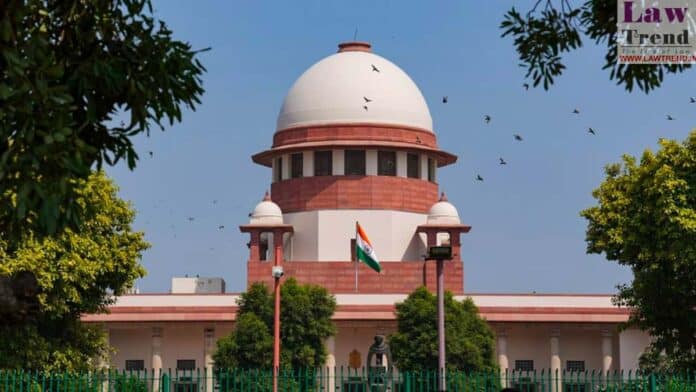Ensuring a free and fair electoral process is imperative for maintaining people’s trust in representative democracy, the Supreme Court has said.
The court had on February 20 declared defeated AAP-Congress alliance candidate Kuldeep Kumar the mayor of Chandigarh after overturning the result of the controversial civic poll where the BJP nominee had emerged an unlikely winner amid allegations of rigging of the counting process by the returning officer.
In its judgement, which was uploaded on the apex court website on Thursday, a bench headed by Chief Justice D Y Chandrachud noted the top court has consistently held that free and fair elections are a part of the basic structure of the Constitution.
It said elections at the local participatory level act as a “microcosm of the larger democratic structure in the country” and local governments, such as municipal corporations, engage with issues that affect citizens’ daily lives and act as a primary point of contact with representative democracy.
“The process of citizens electing councillors, who in turn, elect the Mayor, serves as a channel for ordinary citizens to ventilate their grievances through their representatives both directly and indirectly elected,” the bench, also comprising Justices J B Pardiwala and Manoj Misra, said.
“Ensuring a free and fair electoral process….., therefore, is imperative to maintain the legitimacy of and trust in representative democracy,” it said.
The bench also directed the registrar (judicial) to issue a “notice to show cause to Anil Masih of the Chandigarh Municipal Corporation who was the presiding officer at the election which took place on January 30, 2024, as to why steps should not be initiated against him under section 340 of the Code of Criminal Procedure, 1973”.
The bench, which observed that Masih, who was the returning officer, shall have an opportunity to file his response to the notice to be issued to him, posted the matter for March 15 for considering his response.
During the hearing before the apex court on February 19, Masih had said he put his mark on eight ballot papers during the counting as he found them defaced.
“The ballots had not been defaced when the presiding officer put his mark at the bottom. The ballots left no manner of doubt about the candidate for whom the ballot was cast. But that apart, it is evident that the presiding officer is guilty of a serious misdemeanour in doing what he did in his role and capacity as presiding officer,” the bench said in its verdict.
It said in each of the eight ballot papers, which were invalidated by Masih, the votes were duly cast in favour of Kumar.
The bench, which scrutinised the ballot papers during the hearing and also saw the video recording of the counting process, said, “Pertinently, this is not an ordinary case of alleged malpractice by candidates in an election, but electoral misconduct by the presiding officer himself.”
“The brazen nature of the malpractice, visible on camera, makes the situation all the more extraordinary, justifying the invocation of the power of this court under Article 142 (of the Constitution),” it said. The article empowers the Supreme Court to pass any decree or order necessary for doing complete justice in matters pending before it.
Referring to the observations made by Justice VR Krishna Iyer in a 1977 verdict delivered by the apex court, the bench noted, “In order to maintain the purity of the electoral process, the ‘little cross’ on the ‘little bit of paper’ must be made only by the metaphorical ‘little man’ walking into the ‘little booth’ and no one else”.
The apex court said the result declared by the Masih was contrary to law.
Also Read
“We accordingly order and direct that the result of the election as declared by the Presiding Officer shall stand quashed and set aside. The appellant, Kuldeep Kumar, is declared to be the validly elected candidate for election as Mayor of the Chandigarh Municipal Corporation,” the bench said.
The BJP had won the Chandigarh mayoral polls on January 30 defeating the comfortably placed AAP-Congress alliance candidate after the returning officer declared as invalid eight votes of the coalition partners, drawing accusations of tampering with ballots.
Manoj Sonkar of the Bharatiya Janata Party (BJP) defeated Kuldeep Kumar after polling 16 votes against his rival’s 12 to bag the mayor’s post.
Sonkar, however, resigned subsequently, while three AAP councillors defected to the BJP.
AAP mayoral candidate Kuldeep Kumar had moved the top court challenging a Punjab and Haryana High Court order which refused to grant any interim relief to the party which sought a fresh poll.




